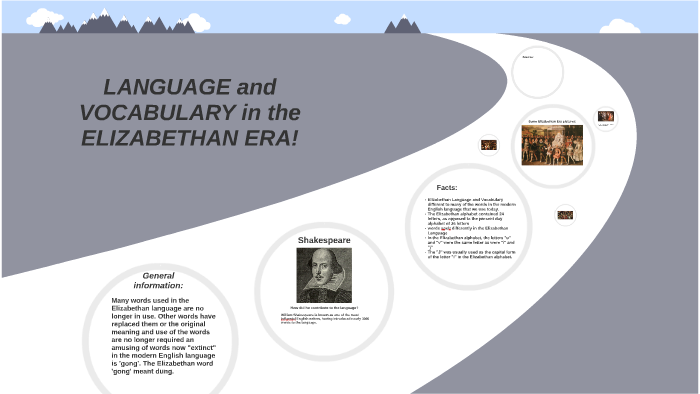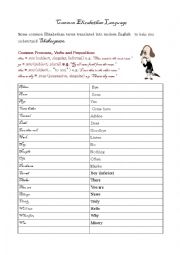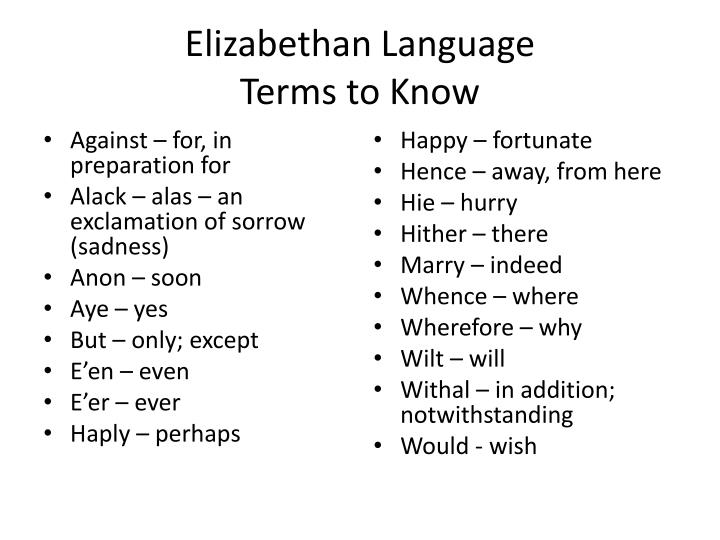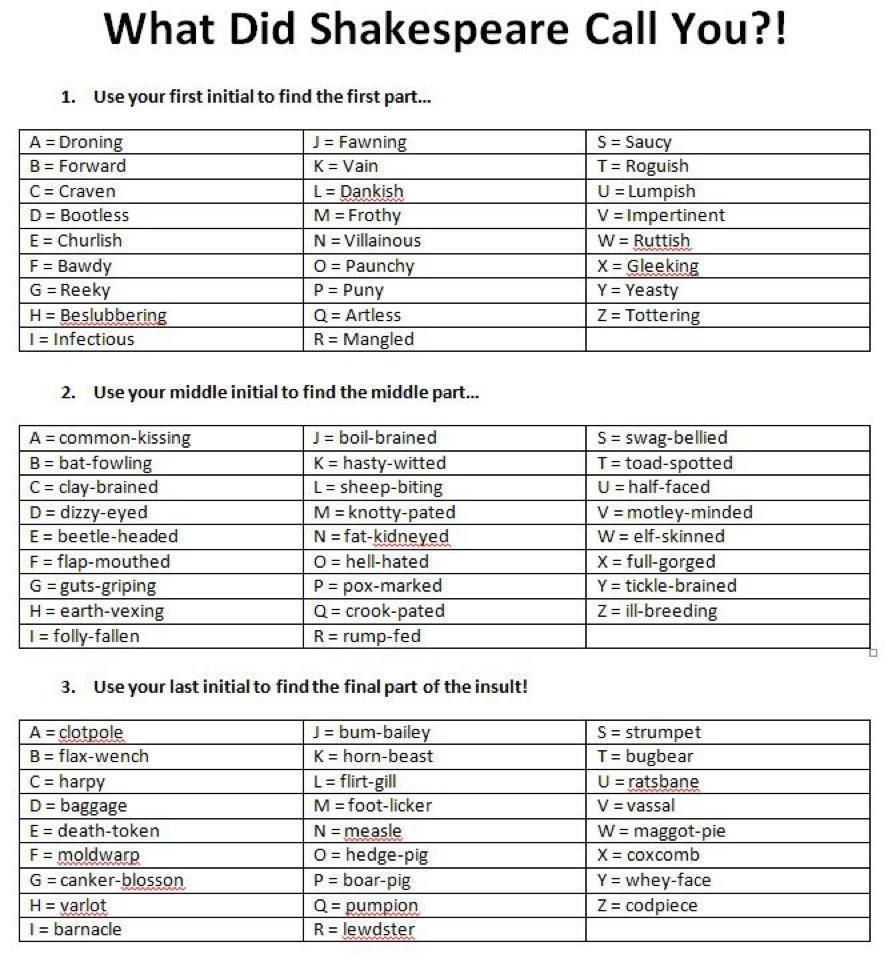
Elizabethan language translator mods#
If you want to start websites or social media handles that requires others to join, it is best if you clear it with the mods first. Rule #9: Try not to self-promote your other social media accounts too much. Linked below is a Discord that this sub-reddit endorses and actively partake in. ItIt's not taboo but we definitely do not want to see a spam of discord servers and IRC rooms links. Rule #8: Do not spam the subreddit with outside chatrooms. We want to encourage conversation and discussion and cross-posting doesn't do that. Rule #7: Don't spam the sub with cross-posts.Ī cross-post here and there is all fine and dandy, but don't cross-post 5 posts from the same subreddit, every day. Previous and current discussion threads can be found here. Right now, we're seeing the same questions over and over (where do I buy DA clothes? How do I style DA clothes for hot weather?) and it's bothersome. We make weekly discussion threads where you can post all of your questions.


You may link to a merchandise store in the comments only provided you follow the 85/15 rule. No linking to personally operated retail/resale sites such as Etsy in a post. Posts must be related to Dark Academia in a tangible way. Racism, sexism, homophobia and other discriminatory stances are not political, it's just being a jerk and therefore not allowed Rule #4: Posts must be DA related Rule #3: Politicsĭiscussions relating to politics are allowed, but keep it civil. It is also open to every subject field even though the aesthetic revolves around literature and art. Regardless of age, race, education standard and gender. Rule #2: No elitism or gate-keepingĭark Academia is inclusive of everyone. This includes but is not limited to trolling, derogatory slurs and personal attack. It incorporates Gothic and vintage style elements, as well as references to ancient Greece, Rome, and the Renaissance. Dark Academia is an aesthetic and subculture dedicated to the pursuit of knowledge. In fact, some of his phrases are very different from anything you've ever heard.A place to connect with other Dark Academics. This does not mean, however, that Shakespeare's English uses the exact same words and phrases that we use but formed the basis of today's English. That's right, much of the language spoken by William Shakespeare (known as Elizabethan English) is still in use today, and is distinct from Middle English (the language of Geoffrey Chaucer, who wrote The Canterbury Tales) and Early English (as found in Beowulf). However, you may be surprised to know that William Shakespeare's English is technically modern English! "Thine" for "yours" (possessive, as in "What's mine is thine.")īecause of the oddities and complexities inherent in the language of Shakespeare, sometimes his works seem incomprehensible. "Thy" for "your" (genitive, as in " Thy dagger floats before thee.") "Thee" for "you" (objective, as in "I give this to thee.") "Thou" for "you" (nominative, as in " Thou hast risen.") The second-person singular (you, your, yours), however, is translated like so: The first person - I, me, my, and mine - remains basically the same.

Shakespeare's PronounsĮlizabethan English used a set of pronouns than we're used to. They list even more words and phrases that, despite their inception over 400 years ago, we still speak today. When you have a moment, take a look at the Shakespeare Birthplace Trust. The world is my oyster (from The Merry Wives of Windsor) Jealousy is a green-eyed monster (from Othello) (from Macbeth)īreak the ice (from The Taming of the Shrew) Clevedon Court is a remarkable medieval mansion, dating originally from the early part of the 14th century, though much altered in the Elizabethan and other periods. Some of the most notable phrases include:Īll that glitters isn't gold. Among several picturesque old houses remaining, that known as the Six Chimneys, an Elizabethan structure, is the most striking. But, in truth, we say a lot of things today that Shakespeare himself coined. That was fun, right? In some senses, it's almost like a different language.

QUICKEN - To bring to life, bring to one's senses Below, you'll find a handy list of some of the most common words used by Shakespeare translated into modern English.ĮMBOSS - To track with the intent to kill


 0 kommentar(er)
0 kommentar(er)
